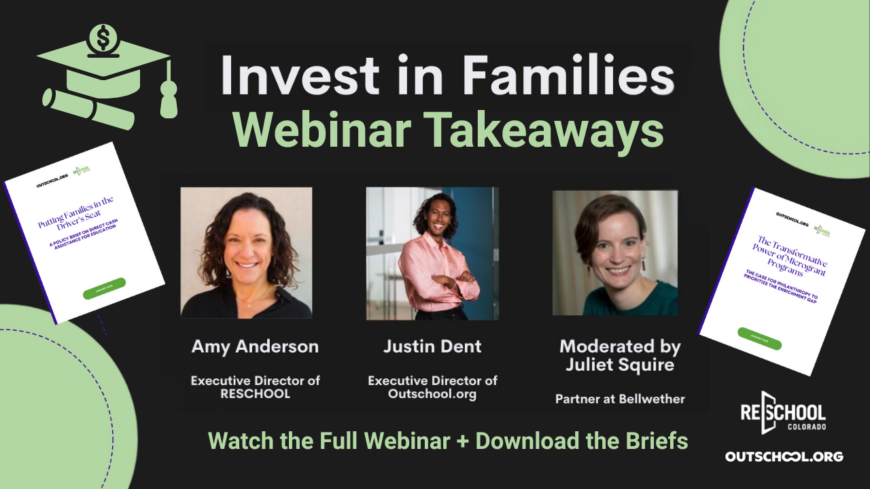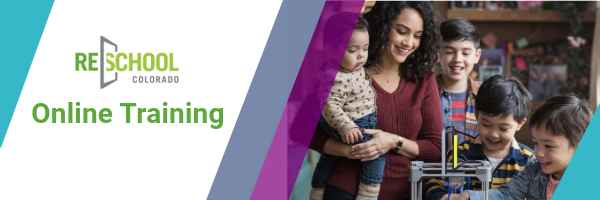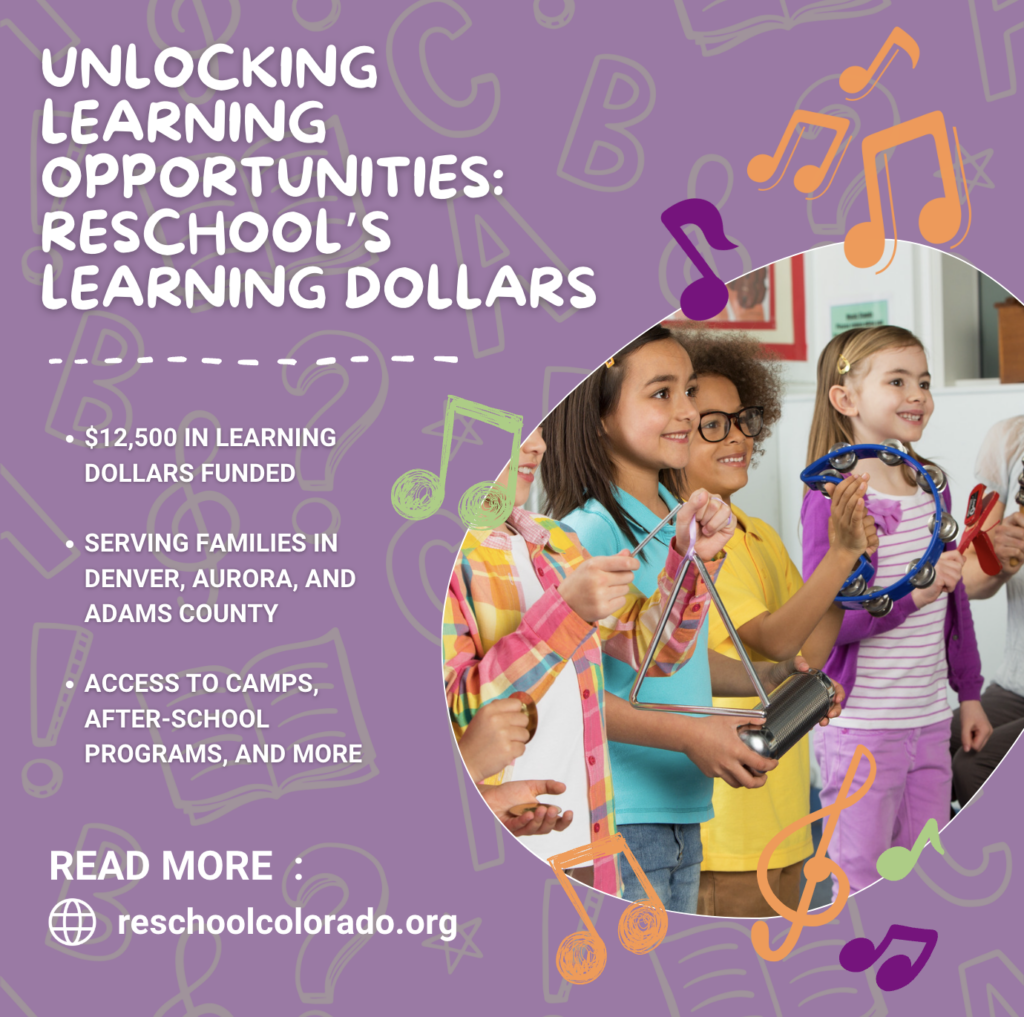What does it look like to center families in education funding? On April 16, 2025, RESCHOOL and Outschool.org convened a powerful conversation to explore this question and share a vision for a more equitable, family-driven future of education.
The live webinar, titled Invest in Families: Direct-to-Family Funding for Educational Equity, brought together three leading voices in education policy and innovation:
- Amy Anderson, Executive Director of RESCHOOL
- Justin Dent, Executive Director of Outschool.org
- Juliet Squire, Senior Partner at Bellwether (Moderator)
Together, they unpacked insights from two new briefs co-authored by RESCHOOL and Outschool.org:
- Putting Families in the Driver’s Seat – A policy framework for designing equitable, accessible direct-to-family funding programs.
- The Transformative Power of Microgrant Programs – A philanthropic blueprint for closing the enrichment gap through nimble, family-centered investments.
Why Now?
As Juliet framed in her opening remarks, direct-to-family education funding — through Education Savings Accounts (ESAs), microgrants, and other models — is gaining traction across the country. But without equity at the center, these policies risk reinforcing the very disparities they seek to solve.
This conversation offered a timely response to a fast-moving policy moment, providing both vision and guidance for how to get it right.
What We Learned
Microgrants and ESAs: Two Tools, Shared Goals
Amy and Justin began by distinguishing the unique roles of microgrants and ESAs.
- Microgrants are typically small, flexible grants (often $500–$2,000) designed to help families cover out-of-school learning expenses, like tutoring, enrichment programs, or extracurriculars.
- ESAs are broader tools, often funded by state dollars, that allow families to use education funds for a wide range of approved expenses, from private school tuition to therapies to educational courses and materials.
Both models offer direct purchasing power to families, but must be designed with support and equity in mind.
Trusting Families, Building Access
Amy shared how RESCHOOL’s Learning Dollars Fund, launched with just $5,000 and 10 families, grew into a community-powered model that helped shape Denver’s $5M My Spark program. The key? Trusting families to know what their children need—and making it easy to act on that knowledge.
Justin echoed that message from a policy lens, noting how Outschool.org’s work with Virginia’s Learning Acceleration Grant program revealed critical barriers. Without navigation support, many families—especially those facing economic or language challenges—struggled to access available funds. Once support systems were added, participation doubled among low-income families.
What Equity Requires
Throughout the panel discussion, three themes emerged as essential for equity:
- Design for Access, Not Just Eligibility
- Outreach must be culturally responsive and multilingual.
- Technology should not be a barrier—application systems must be mobile-friendly and easy to use.
- Families need support choosing and navigating learning providers.
- Leverage Community Partnerships
- Trust is often built through familiar, local organizations—nonprofits, schools, cultural groups—who can help families feel safe and supported accessing funds.
- Trust is often built through familiar, local organizations—nonprofits, schools, cultural groups—who can help families feel safe and supported accessing funds.
- Start Small, Scale Intentionally
- Philanthropy can play a catalytic role in testing, iterating, and scaling programs. RESCHOOL’s initial microgrant pilot helped demonstrate viability and demand, paving the way for public investment.
Watch the Full Webinar
The session closed with a call to action: to rethink how education dollars flow, and ensure they’re reaching the families who need them most.
If you missed the event or want to revisit the conversation, the full recording is available below:
Dig Deeper: Read the Briefs
Download the two co-authored briefs to explore the full recommendations and real-world case studies discussed during the webinar:
- Putting Families in the Driver’s Seat: A Policy Framework
- The Transformative Power of Microgrant Programs: A Philanthropic Blueprint
Together, we can ensure that education funding works for all families, not just those with the loudest voices or the easiest access.
Let’s invest in families. Let’s invest in equity.




